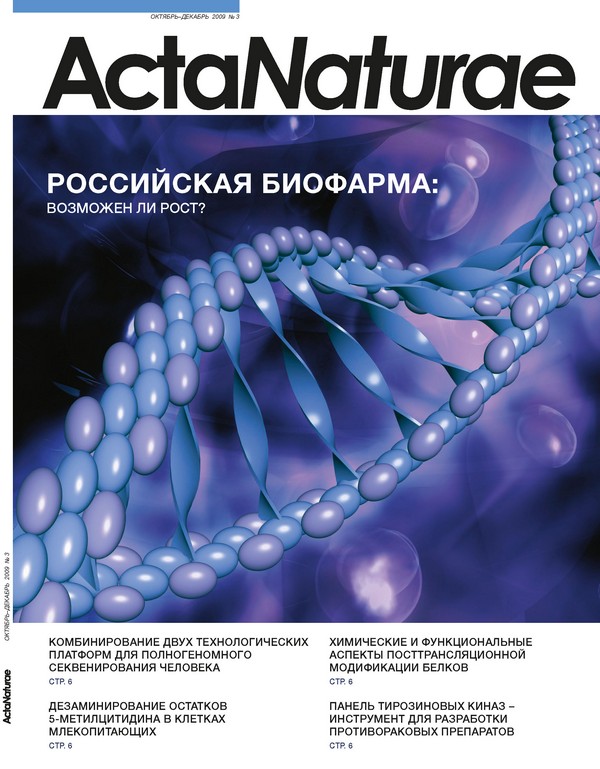Аннотация
The share of locally produced insulin on the Russian market estimated at more than seven billion roubles in 2008 is, in reality, microscopic: national industry covers only 2 % of the market (see Table 1). This is unreasonably small, especially because а) Russian producers have enough capacity to produce insulin for the entire country, with similar or even higher quality as compared with foreign products, b) hundreds of thousands of insulindependent patients in some particular political or economical circumstances could suffer without this life-saving treatment. The World Health Organization recommends that any country with a population of more than 50 millions have its own manufacturing base for insulin. Anatoly Miroshnikov is an assistant director of the M.M. Shemiakin and Y.A. Ovchinnikov’ Institute of Bioorganic Chemistry of the RAS, which produces insulin with the trade name Insuran. He talks to Acta Naturae on why Russia needs its own factories for the production of genetically engineered drugs.







